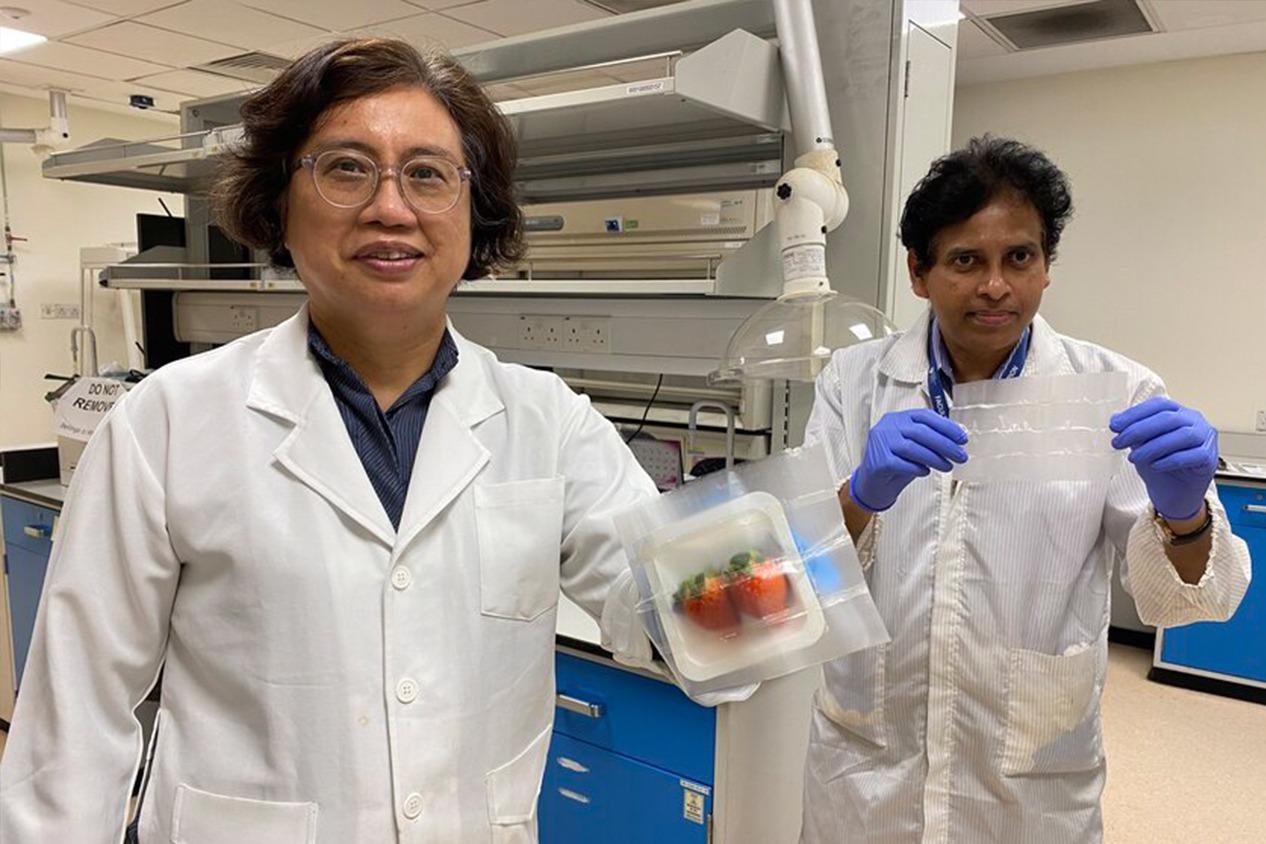A biodegradable and sustainable “smart” food packaging material has been developed by a research group from Nanyang Technological University (NTU) Singapore and Harvard T.H. Chan School of Public Health, US.

Image Credit: Nanyang Technological University
The material has the ability to kill microbes that cause harm to humans and could even prolong the shelf-life of fresh fruits by two to three days.
The natural food packaging has been made from a kind of corn protein known as zein, starch, and other naturally derived biopolymers that were infused with a cocktail of natural antimicrobial compounds. These consist of citric acid, generally found in citrus fruits, and oil from thyme, a common herb utilized in cooking.
On exposure to an increase in humidity or enzymes from harmful bacteria in laboratory experiments, the fibers present in the packaging have been proven to discharge the natural antimicrobial compounds. As a result, common hazardous bacteria that contaminate food, like E. coli and Listeria, and fungi were killed.
The packaging has been developed to discharge the essential amounts of antimicrobial compounds in response to the presence of extra bacteria or humidity. This guarantees that the packaging can bear various exposures and last for months.
Since the compounds have the potential to fight any bacteria that grow on the surface of the packaging as well as on the food product itself, it can be utilized for a great variety of products, such as raw meat, ready-to-eat foods, vegetables, and fruits.
In the experiment, strawberries wrapped in the packaging remained fresh for seven days before developing mold. This was compared to counterparts preserved in mainstream fruit plastic boxes that stayed fresh for only four days.
The invention was possible due to the collaboration by researchers from the NTU-Harvard T. H. Chan School of Public Health Initiative for Sustainable Nanotechnology (NTU-Harvard SusNano). This helps collaborate scientists from NTU and Harvard Chan School to work on cutting-edge applications in food and agriculture, having a focus on developing harmless and eco-friendly nanomaterials.
The measures taken by the University were also responsible for the development of this advanced food packaging material, which was part of the NTU 2025 strategic plan to advance sustainable food tech solutions. The project also aims to develop sustainable solutions to meet a few of the pressing grand challenges of humanity.